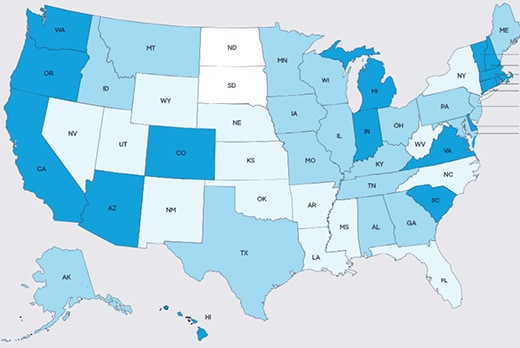Updated: Oct 20, 2023

Article highlights
- You and your parents will report certain assets on the FAFSA.
- Your asset records are part of the calculation for your Student Aid Index (SAI), which determines your eligibility for need-based federal aid.
- It’s important to be as accurate as possible when completing the FAFSA.
When it comes to preparing for college, filling out the FAFSA (Free Application for Federal Student Aid) can be daunting because it requires a lot of personal and financial information from both parents (i.e., parent, guardian, adult at home) and students. Some of the questions on the application may leave you confused, especially those about assets.
An asset is something that holds value. This includes cash, stocks, and real estate. You and your parents will report certain assets on the FAFSA, backing up any claims with paperwork. These asset records are then used as part of the calculation for your Student Aid Index (SAI) (previously EFC), which determines how much need-based federal aid you’re eligible for.
What assets are reported on the FAFSA?
Some assets are reportable while others are not. Assets considered for the FAFSA include:
- Money, which includes current balances of any cash, savings, and checking accounts
- Non-retirement investments, like brokerage accounts, real estate (other than your primary residence), CDs, and stock options
- Trust funds
- Businesses or farm assets you own
- Child support received
- Education savings accounts, which include 529 plans and other college savings plans, such as Coverdell savings accounts (Note: Savings plans are reported as an asset of the account owner, not the beneficiary.)
But it’s not as straightforward as just listing the value of assets. On the FAFSA, you’ll be filling out the net worth of your assets, with bank information provided as backup. The net worth of assets is calculated by subtracting any debt owed on the asset from the asset itself. For example, let’s say your parents have a rental property that is valued at $400,000. But they owe $300,000 on the property. The net worth of the property would be $100,000. On the FAFSA, net worth cannot be negative; it can only be recorded as 0, even if the asset has negative worth.
If your or your parents’ net worth is significant or complex, consider consulting a financial professional to assess the most strategic way to handle your assets. There can be tax implications when money is being transferred between accounts and individuals, so it can be a good idea to talk through options with a financial professional first.
What is not considered an asset on the FAFSA?
Not everything is counted as an asset on the FAFSA, including:
- Equity you own in your primary residence
- Life insurance policies
- Personal possessions
- Retirement plans, like a 401(k), non-education IRAs, annuities, and others
- UGMA and UTMA accounts that are not owned by you
- ABLE accounts
How are assets used in determining financial aid?
The information you provide on the FAFSA, including income and assets, is used to calculate your SAI, which determines how much financial aid you will be eligible to receive. The Federal Student Aid Estimator can help you understand your eligibility for federal student aid and how much your SAI might be prior to completing the FAFSA.
Do I need to answer all asset related questions on the FAFSA?
As you fill out the FAFSA, you may find certain questions don’t apply to you. Depending on your financial situation, you may be able to skip certain questions regarding income and assets. Skipping questions won’t impact your eligibility for federal student aid, but it might affect eligibility for certain state-specific aid.
What if I choose not to list all my assets on the FAFSA?
It is important to be accurate and honest with your financial information on the FAFSA application because it can be audited by the US Education Department through a process known as verification. Verification requires students to further attest to—and in some cases prove—that the information reported on their FAFSA is accurate.
Verification can take many forms. From relatively quick tasks, such as verifying household size, to more time-consuming actions, such as proving a parent’s unemployment status with a notarized letter. If students fail to complete verification, they may be ineligible to receive federal, institutional, or state aid. And if you submit false information and receive aid, you could be responsible for repaying the money and subject to fines.
While it’s important to be as accurate as possible, mistakes happen. If you do make a mistake, you can update your FAFSA after it’s been submitted.
Can I gather my financial materials ahead of time?
You can prepare your financial information before the FAFSA application is available, which is on October 1. Gathering as much information as possible before you start the process can help you fill out the application seamlessly and quickly. Since you’ll need to include documentation with the FAFSA application, downloading and printing any statements now can pay off in terms of less paperwork later.
FAFSA® is a registered service mark of the U.S. Department of Education and is not affiliated with Discover® Student Loans.









